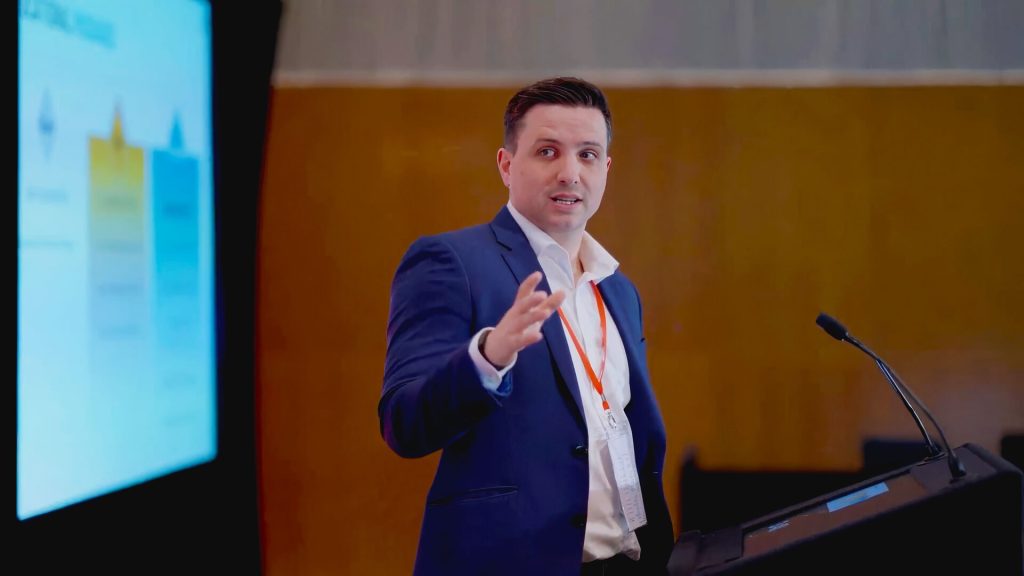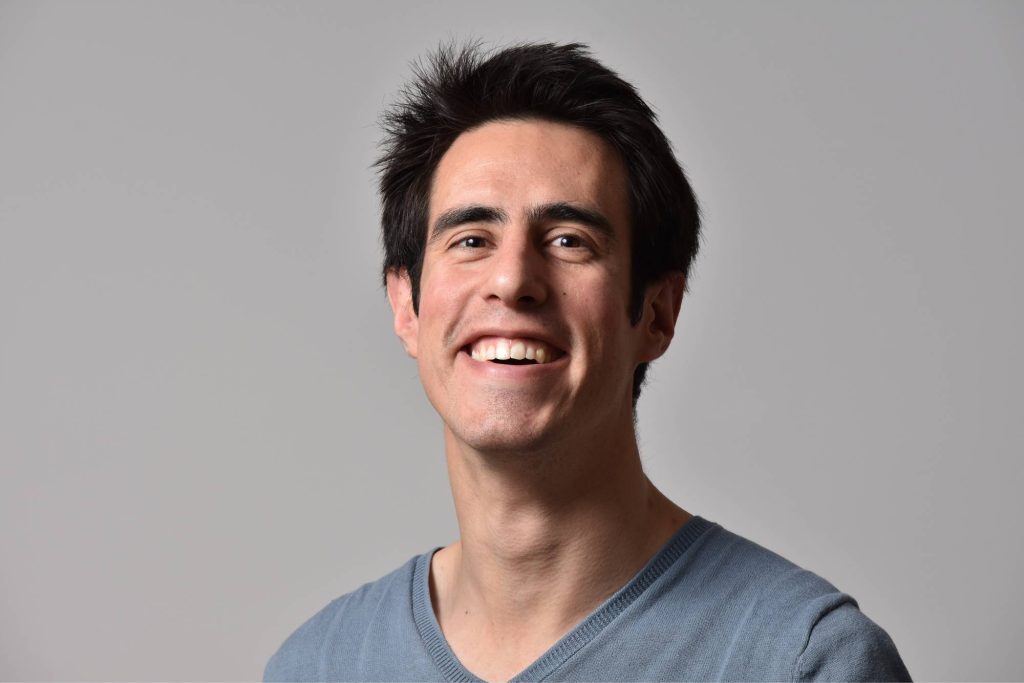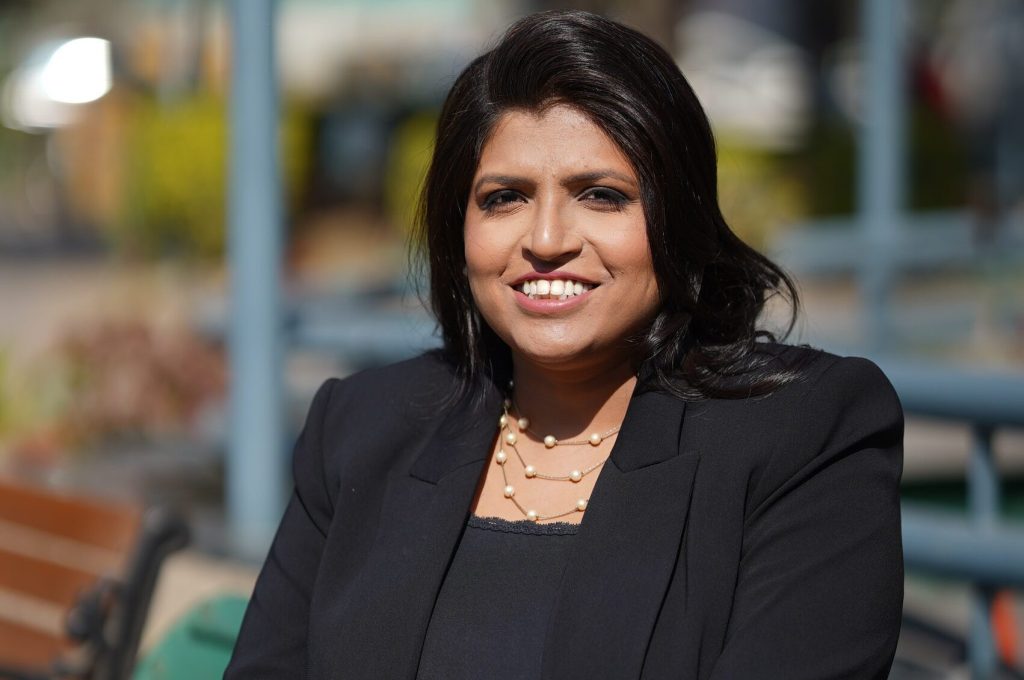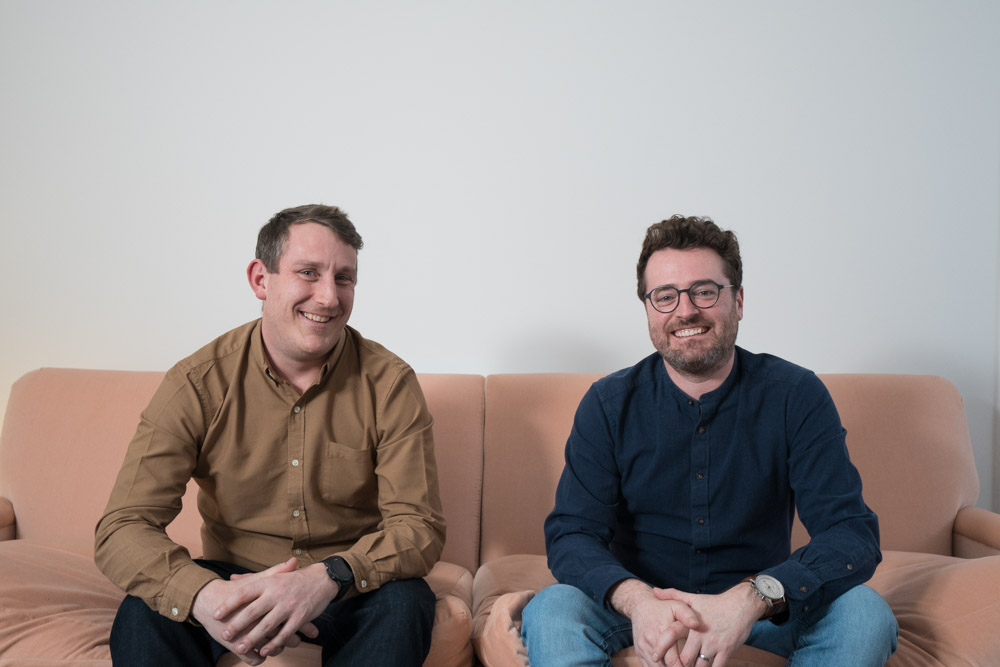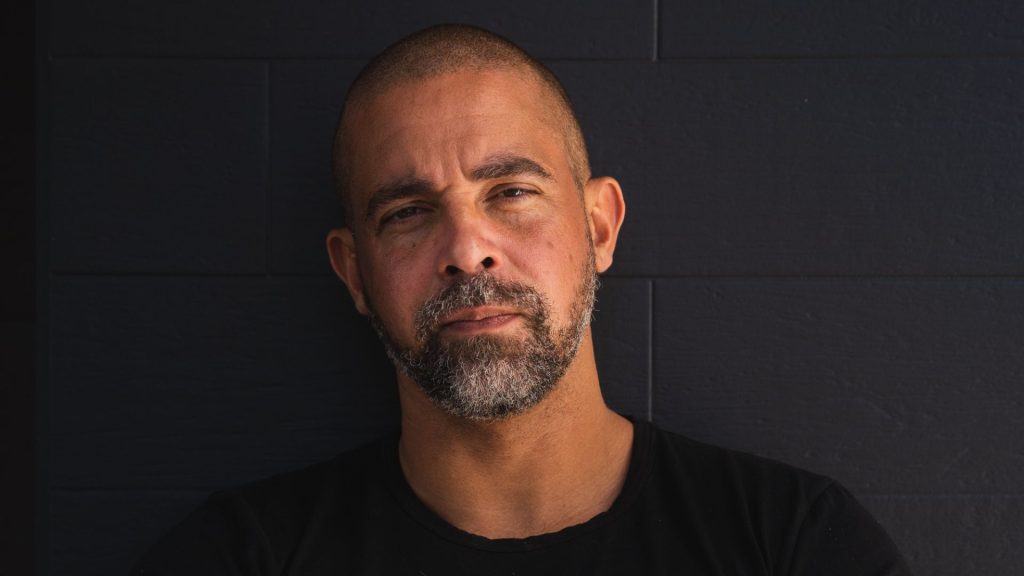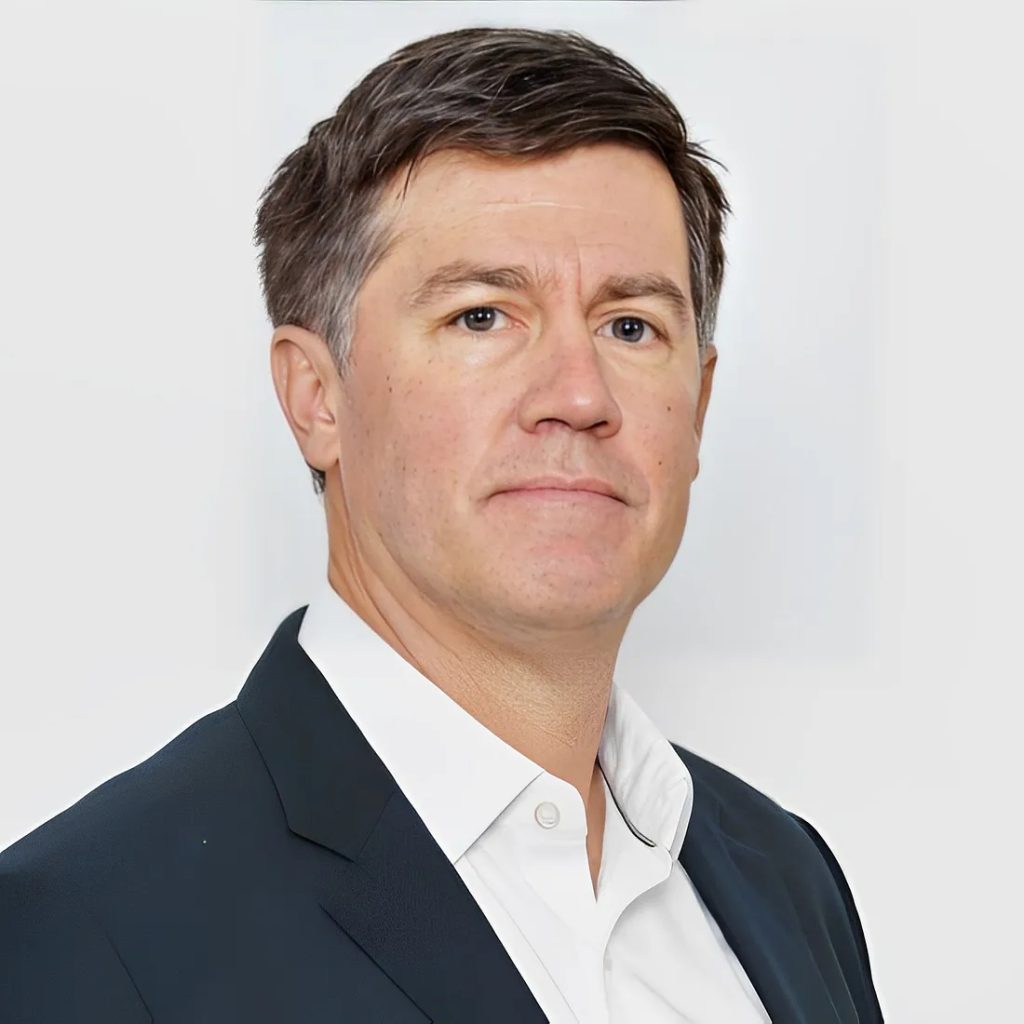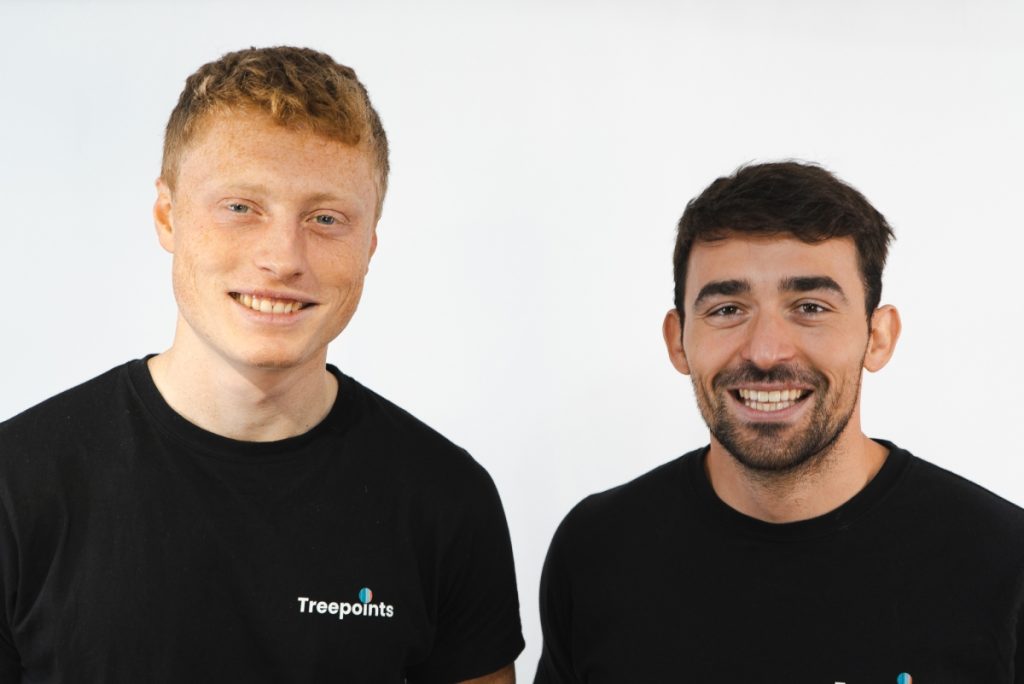
Climate Tech Innovators Reveal: How Understanding Issues Leads to Unstoppable Solutions – Jacob Wedderburn-Day & Anthony Collias

“Understand the problem you solve. Once you have that, you’ll have a confidence in your product/ service/ business which far outweighs the doubts of it not working. Simply take a step back and ask “What’s the problem? Why this solution? Why us? How big is the market”. This will help you build and offer a solution which ticks all these boxes when setting your company goals, not to mention it’ll help you significantly to differentiate from competitors meaning you don’t need huge investment to start with because your product will ultimately sell itself..” – Jacob Wedderburn-Day & Anthony Collias
Today we feature Jacob Wedderburn-Day & Anthony Collias, the co-founders at Treepoints. We hear their story in their own words, their successes, their challenges and their insights.
Let’s start by getting to know you. Can you please tell us a little bit about you and what you do?
So Jacob and I are co-founders of Treepoints – the world’s first platform to reward you for offsetting your carbon footprint. We’re a fusion of a subscription plan and external API, Treepoints allows users and businesses to achieve carbon neutrality status. The bonus of their reward scheme is in the form of a green marketplace, which includes eco-friendly brands like Patagonia, Toms, and Lush. Think “air miles”, but for helping the planet not harming it.
A great introduction and start to this interview. Can you please tell us, how did you start, from what age, and what made you decide to change direction and start?
Jacob and I are friends from Oxford University, we co-founded Stasher, the world’s first luggage storage platform in 2015, the year we graduated. Stasher is now present in over 250 cities worldwide and is valued at $12 million. When the pandemic hit in 2020, things at Stasher fell quiet. Not content with waiting for life to return to normal, we decided to pursue an issue that had long been on their mind: climate change. Jacob and I saw first-hand that lots of people are concerned about climate change and want to protect the environment, but that knowing where to start can be hard. From this simple idea, Treepoints was born.
Thank you for that insight. So can you tell us…What does your business do and where is your company based?
As individuals, we have long been worried about the impact of the climate crisis on our planet. During the pandemic, things fell quiet at Stasher, our travel tech company that connects travellers with an international luggage storage network. We decided that rather than waiting for the world to go back to normal, this was the perfect time to direct our energies towards doing something about climate change.
From speaking to friends and family, we understood that lots of people are increasingly concerned about the climate crisis, but that knowing how to do something meaningful about it is a daunting prospect. How can you be sure that your money is making a positive difference? As just one person, what can you do? These questions came up time and time again, and from this, the idea for Treepoints was born.
Our goal is to provide everyday individuals and businesses with a simple way to take meaningful climate action. We help people understand their carbon footprint and then do something about it through offsetting their emissions. It is vital to us that climate action is affordable and accessible to everyone – a subscription to offset your entire carbon footprint costs just £3.25 per month.
We strongly believe that good actions deserve reward and that people should feel good about taking climate action. This is why we built the Treepoints rewards platform. Every time a subscriber donates, they earn points. These can then be spent on the rewards platform with eco-friendly partner brands such as Grind Coffee, Patch Plants, and Brewdog beer.
You can also earn points for referring your friends and family, incentivising people to spread the word about taking climate action. Treepoints allow everyday individuals and businesses to understand their impact on the environment, calculate their emissions, and offset their carbon footprint. We have built a simple carbon calculator that works out an estimate of your carbon footprint based on where you live and your lifestyle.
You can then select a membership tier based on the size of your footprint to offset your emissions. We always encourage people to offset more than they emit to have a positive impact. We provide people with lots of resources for understanding their carbon footprint what carbon offsetting means and why it’s important.
Once you are subscribed, you can monitor your progress on your personal dashboard. Here you can see how much carbon you’ve offset to date and access the rewards platform to spend your points. All subscribers also receive discounts with eco-friendly brands to incentivise sustainable shopping. We also send regular updates from the carbon offsetting projects that we work with, as well as sharing a public ledger where you can see our donation history for complete transparency.
The projects that we work with go through a rigorous selection process, and we only select schemes that have been externally verified to the highest level by internationally recognised organisations including the Gold Standard and the Verified Carbon Standard. In this way, we can guarantee people that their donations are having a meaningful, quantifiable impact.
For businesses, the subscription model is the same to offset your employees. The points you earn are then distributed between your team so that they can all benefit from the rewards. We provide an easy way for businesses to make their workforce and operations more sustainable, which is increasingly important as the environmental impact of companies comes under public scrutiny.
Simplicity is at the heart of everything we do, and we want to make climate action as easy as possible for businesses to implement. For this reason, we recently launched an API and Shopify integration so that companies can add tree planting and/or carbon offsetting into their checkout flow.
Finally, with the return of international travel, we have also created a flight calculator so that people can calculate the impact of their flights and make a one-off donation to offset them. Mile for mile, flying is the worst form of transport for the environment, and we always advise people to avoid flying. But we know that this is not always possible or realistic given the demands of modern life, which is why we have made it easy to offset the entirety of your emissions from flying.
What’s the story behind your success? What led to your aha moment? how did you get to where you are now?
We believe that doing good for the planet deserves reward. This is why every donation earns “Treepoints”, which can be spent on our rewards platform with eco-friendly brands including Brewdog, Grind, and Patch Plants. You also earn points for referring your friends to Treepoints, incentivising people to spread the word and get more people on board to fight climate change. That’s what separates us from the rest, eco-friendly awards!
Thank you for sharing that. What’s been your life’s biggest lesson so far?
We officially launched in beta in November 2020, using a lot of the experience we had gained from starting Stasher from scratch in 2015. Many of the skills were transferable i.e. creating a suitable business model, setting up a website, finding partners + gaining traction and momentum. One of the big challenges we hadn’t faced before was doing this all remotely. One of the best things about starting from the ground-up is the energy and creativity that comes from us all putting our heads together, and the long conversations that come as a result.
We’ve quickly found this is not quite the same when done virtually on video calls. So solutions to problems or ‘world-changing ideas’ are definitely harder to come by than pre-pandemic. Not to mention sales. When we launched Stasher we were going door-to-door, pitching to investors, entering competitions, flyering and over time had developed a playbook that we could pass on and refine with new staff. This had to be completely rewritten for Treepoints, as we had no choice but to alter and adapt the strategies we used previously to generate good, qualified leads as well as reach customers directly.
If you were to go back in time, what piece of advice would you give to your younger self?
Life is too short to not work on something you enjoy and that matters. It helped that we had prior experience from starting Stasher. That’s made everything incredibly speedy the second time around. Here are some of the tricks.
1) It’s easy to over-focus on products, but the key is marketing. You have to have an idea of how you will distribute this and reach people.
2) Keep the product simple to begin with and if you can, build it yourself. Lean startup methodology: iterate and release.
3) The admin around starting a company seems more off-putting and burdensome than it is. We did all of that very quickly — modern-day fintechs make it so easy to open a bank account and registering a company is also easy. You can do all of it online.
We’re nearly halfway through our interview so it’s a great time to ask how does your business run. What three tools make your business run better?
I’m paraphrasing Ken Robinson, here, who gave a great TED talk on the subject, but I believe the education system was set up in a way that supported the needs of the 1800s — it’s great for churning out bureaucrats or academics, but it has not been adapted to the modern world of business.
In the modern day, I’d put more emphasis on coding and IT, for example. But there are also a lot of soft skills, sales being the best example, which would be useful to train children in. Budgeting is another life skill that goes overlooked. How about email etiquette? Good time-management? These are all things we mostly end up figuring out for ourselves, but there are accepted best practices and great systems you can learn. The basics of sales are something everyone would benefit from learning.
What do you know now that you wished you had known before?
I’d say these are my top three.
1) It’s easy to over-focus on products, but the key is marketing. You have to have an idea of how you will distribute this and reach people.
2) Keep the product simple to begin with and if you can, build it yourself. Lean startup methodology: iterate and release.
3) The admin around starting a company seems more off-putting and burdensome than it is. We did all of that very quickly — modern-day fintechs make it so easy to open a bank account and registering a company is also easy. You can do all of it online and I wish we knew that earlier.

What has been your greatest or proudest achievement or moment?
There are many… maybe featuring in Forbes 30under30 alongside my co-founder Jacob. Or taking Stasher’s value to over $12 million. A funny one that I always enjoy telling, is how we secured our first round of investment. We had been looking into the storage industry more and more, so we picked out a handful of business leaders we thought would make good investors. One, we noticed, was an alumnus of our university! We found his email on ceoemails.com — genuinely! We sent him a cold email, asking him to meet him and get his feedback on our business. To our surprise and delight, he replied, agreed to meet us, and ultimately he became our first investor.
What future life goals do you want to achieve and why?
Our vision for Treepoints is to see it become the TrustPilot-equivalent stamp of Sustainability. People know the brand and expect to see it on products, services, and companies. Individuals everywhere in the developed world understand what carbon offsetting means and offset their footprint with Treepoints. Our goal is to become a household name for sustainability, being the easiest subscription, API integration and tree-planting service for individuals and businesses alike.
We will achieve this by continuing to add partners and members to our platform and investing in marketing to reach a wider potential audience, educating people about the importance of offsetting. We also have ambitions to become a source of funding for green projects, able to finance carbon reduction schemes. As a social enterprise, we are committed to reinvesting at least 50% of our profits, and we hope to easily achieve profitability within the next 5 years to be able to start reinvesting in environmental projects, such as carbon capture technology. This will also enable us to have a greater level of personal contact with the projects that we are supporting.
We also plan to add a green finance plan, helping people to understand the impact of their purchasing habits on the environment. This may include an open banking integration or similar so that people can see the carbon footprint of the products they buy, the journeys they make, and their lifestyle choices. Financially, because Treepoints is an MRR business, our hope and expectation is that 2021’s fundraising will be sufficient to take it to a point of sustained organic growth. In future years, we should be able to use revenue-based financing to add funds as we need them.
To finish our inspire questions…”We believe that sharing inspiring words can inspire others.” If there was one positive thing you would say to someone to inspire and empower them what would it be and why?
Understand the problem you solve. Once you have that, you’ll have confidence in your product/ service/ business which far outweighs the doubts of it not working. Simply take a step back and ask “What’s the problem? Why this solution? Why us? How big is the market”. This will help you build and offer a solution which ticks all these boxes when setting your company goals, not to mention it’ll help you significantly to differentiate from competitors meaning you don’t need huge investment to start with because your product will ultimately sell itself.
“Thank you it has been great learning more about your founder story and Treepoints”
To learn more about Treepoints visit https://treepoints.green/
Inspired by this story? Please share this story and other founder stories.
Disclaimer:
The views, thoughts, information, and opinions expressed in the text, videos, images belong solely to those of the individuals involved, and do not necessarily represent those of Founderat.com and its corporate owners, employees, organization, committee, or other group or individuals.


